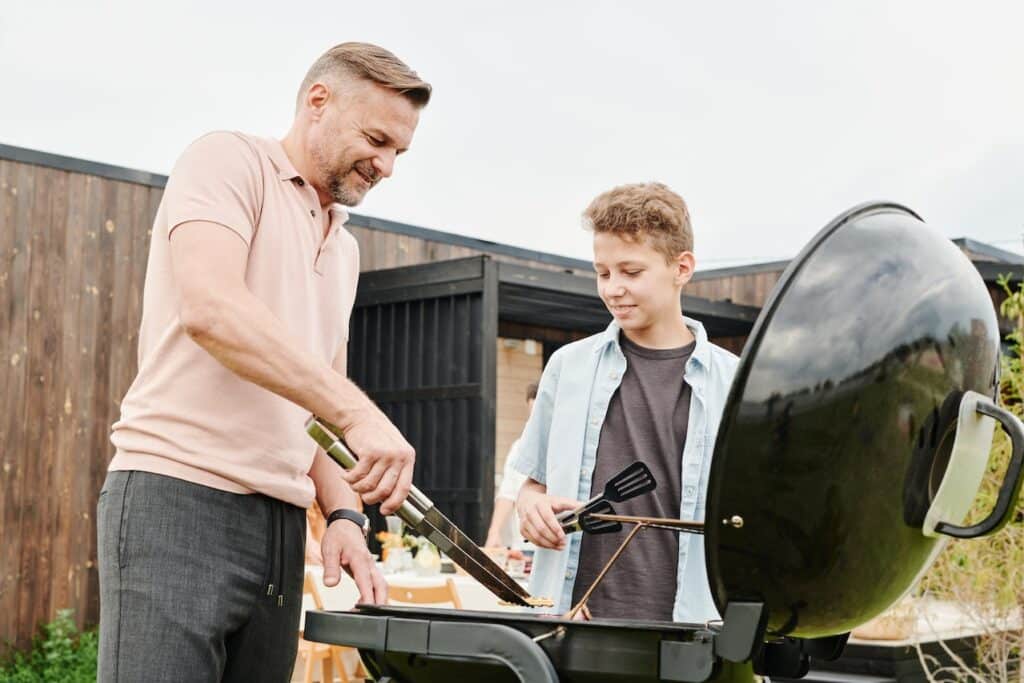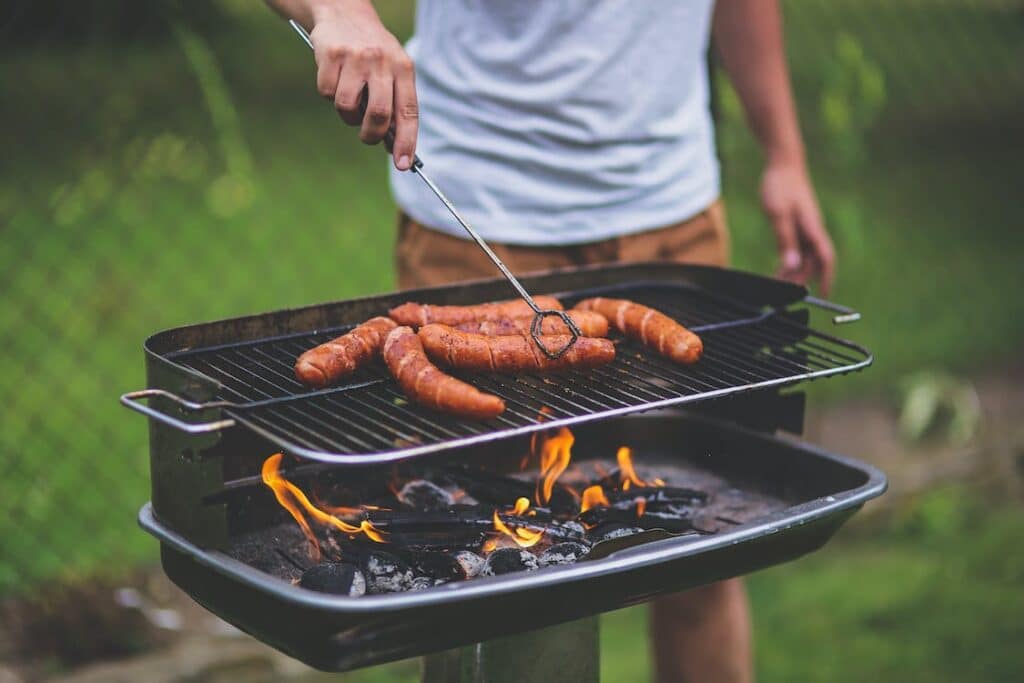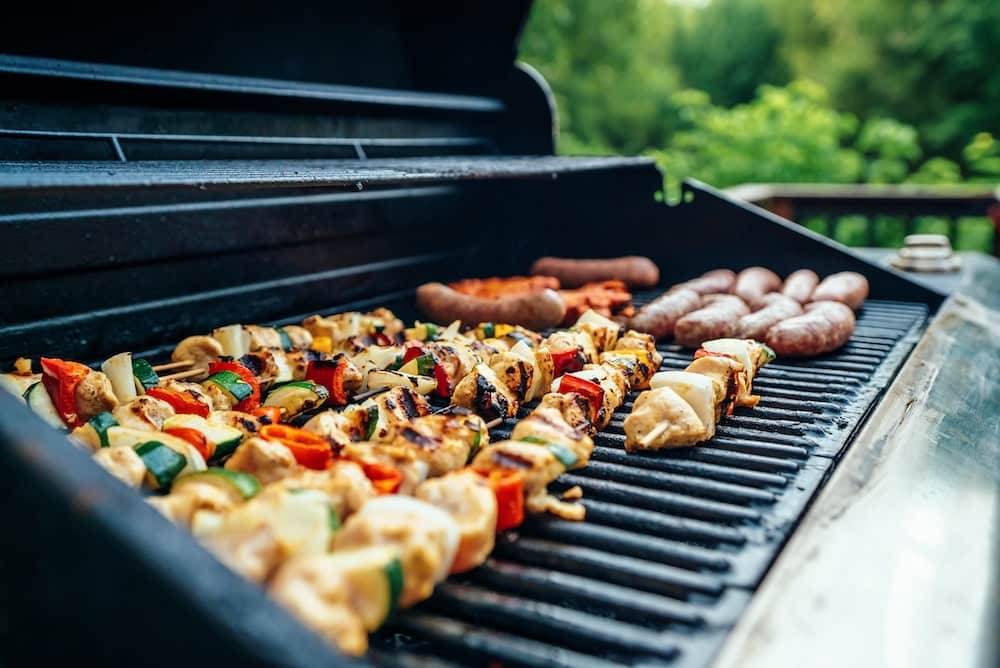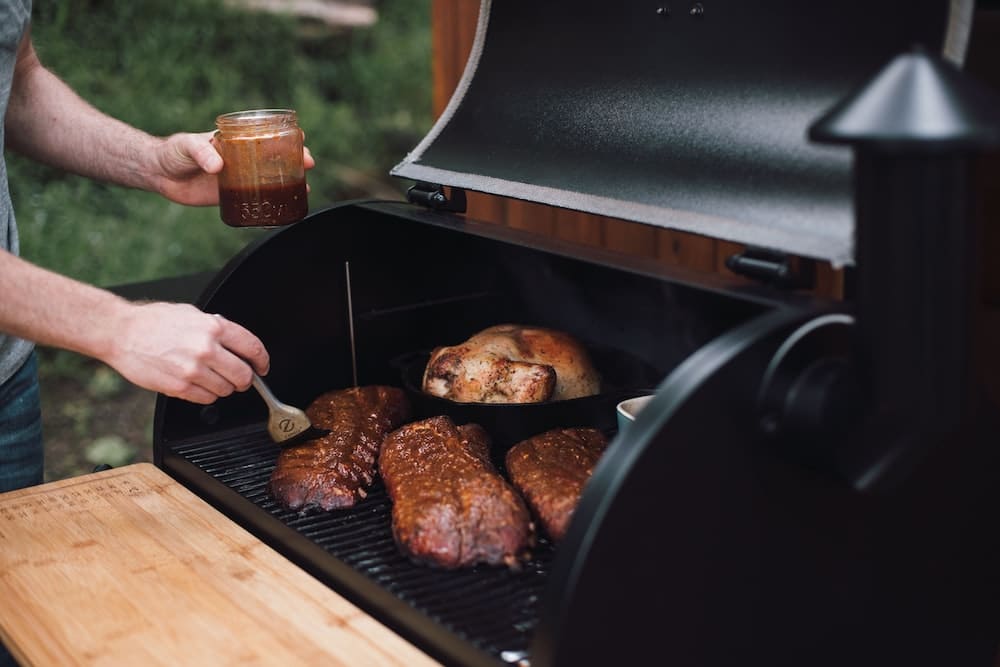Gas grills are a staple of outdoor cooking, providing an easy and convenient way to cook up delicious meals for family and friends. But if you’re a grill owner, you may be wondering how long your gas grill will last. The answer to this question depends on several factors, including the quality of the grill, how well it’s maintained, and how often it’s used.

Understanding the lifespan of a gas grill can help you make informed decisions about maintenance and replacement. On average, a gas grill will last between five and 15 years, although some high-end models can last even longer. The lifespan of your grill will depend on several factors, including the quality of the materials used, how often you use it, and how well you take care of it. By understanding these factors, you can take steps to extend the life of your grill and get the most out of your investment.
Key Takeaways
- Gas grills typically last between five and 15 years, depending on several factors.
- Proper maintenance can help extend the life of your grill.
- When it’s time to replace your grill, consider investing in a high-quality model to ensure a longer lifespan.
Understanding Gas Grill Lifespan
https://www.youtube.com/watch?v=oaDT_dsSzmg&embed=true

When you invest in a gas grill, you want to make sure that it will last for a long time. The lifespan of a gas grill can vary depending on several factors, but on average, a gas grill can last between 5-15 years. In this section, we will discuss the average gas grill lifespan, factors affecting grill lifespan, and signs that your gas grill needs replacing.
Average Gas Grill Lifespan
As mentioned earlier, the average lifespan of a gas grill is between 5-15 years. However, this lifespan can vary depending on how often you use your grill and how well you maintain it. If you use your grill frequently and don’t take care of it, you may only get 3-5 years out of it. On the other hand, if you use your grill less frequently and take good care of it, you may get up to 20 years out of it.
Factors Affecting Grill Lifespan
Several factors can affect the lifespan of your gas grill. One of the most significant factors is the quality of the grill. A high-quality gas grill made with durable materials is likely to last longer than a cheaper, lower-quality grill. Other factors that can affect the lifespan of your grill include:
- Frequency of use
- Exposure to the elements (rain, sun, etc.)
- Maintenance and cleaning
- Type of fuel used (propane or natural gas)
Signs Your Gas Grill Needs Replacing
Knowing when to replace your gas grill is essential to ensure that you are grilling safely and efficiently. Here are some signs that your gas grill may need replacing:
- Rust or corrosion on the grill grates or other parts of the grill
- Uneven heating or hot spots
- Burners that don’t light or stay lit
- Excessive smoke or flames
- Gas leaks or other safety concerns
If you notice any of these signs, it may be time to replace your gas grill. Investing in a new grill can ensure that you can continue to enjoy delicious grilled food for years to come.
Maintaining Your Gas Grill
https://www.youtube.com/watch?v=WP_n-YYzIwE&embed=true
To ensure that your gas grill lasts for as long as possible, it is essential to maintain it properly. This section will cover some of the essential maintenance tasks that you should perform to keep your grill in good condition.
Regular Cleaning
Regular cleaning is one of the most important things you can do to keep your gas grill in good condition. You should clean your grill after every use to prevent grease and food particles from building up on the grates and burners. This will help to prevent flare-ups and ensure that your food cooks evenly.
To clean your grill, start by brushing the grates with a wire brush to remove any food debris. You should also clean the burners and the inside of the grill with a damp cloth or sponge. For a deeper clean, you can remove the grates and clean them with warm, soapy water.
Proper Storage
Proper storage is another critical factor in maintaining your gas grill. When you are not using your grill, you should store it in a dry, covered area such as a shed or garage. This will help to protect it from the elements and prevent rust from forming on the grates and burners.
Before storing your grill, make sure that it is completely cool and that the propane tank is turned off. You should also remove the grates and clean them thoroughly before storing them.
Timely Repairs
If you notice any issues with your gas grill, it is essential to address them as soon as possible. Ignoring problems can lead to more significant issues down the line, and may even shorten the lifespan of your grill.
If you need to make repairs to your grill, start by consulting the owner’s manual for guidance. You can also contact the manufacturer or a professional repair service for assistance.
By following these maintenance tips, you can help to ensure that your gas grill lasts for many years to come.
Replacing Grill Parts
https://www.youtube.com/watch?v=abTP4v2mtbI&embed=true
If you want to extend the lifespan of your gas grill, you need to replace its components from time to time. Here are some tips on when to replace grill parts and choosing quality replacement parts.
When to Replace Grill Parts
It’s important to replace grill parts when they become damaged or worn out. If you notice that the burners are not heating up evenly, or the ignition system is not working properly, it’s time to replace those parts. Other signs that your grill needs new parts include rusted or corroded components, damaged cooking grates, and faulty gas regulators.
Consumer Reports suggests that you should replace grill parts every three to five years, depending on how often you use your grill and how well you maintain it. If you use your grill frequently, you may need to replace parts more often.
Choosing Quality Replacement Parts
« How Hot Can Traeger Grills Get? A Comprehensive Guide
How Many Hours of Grilling Can You Get from a Propane Tank? »
When it comes to replacing grill parts, it’s important to choose high-quality components that are designed to fit your specific grill model. Using generic or low-quality replacement parts can lead to poor performance and even safety hazards.

Look for replacement parts that are made by the original equipment manufacturer (OEM), or by a reputable third-party supplier. Check online reviews and ratings to find the best replacement parts for your grill.
Higher quality replacement parts may cost more upfront, but they can save you money in the long run by lasting longer and performing better. Additionally, higher quality parts are less likely to cause damage to other components of your grill.
In conclusion, replacing grill parts is an essential part of repairing your gas grill. By knowing when to replace grill parts and choosing quality replacement parts, you can keep your grill running smoothly for years to come.
Preventing Common Grill Issues
Gas grills are a great addition to any backyard, but they do require some maintenance to keep them running smoothly. Here are some tips to help you prevent common grill issues.
Avoiding Grease Fires
One of the most common issues with gas grills is grease fires. Grease fires occur when fat and grease build up on the grill grates, drip tray, or drip pan. To avoid grease fires, make sure to clean your grill regularly. After each use, use a grill brush to remove any food debris from the grates. You should also clean the grease tray or drip pan, as well as the bottom of the grill, to prevent grease buildup.
Preventing Rust and Wear
Another common issue with gas grills is rust and wear and tear. Rusting can occur when the grill is exposed to water or moisture, which can cause the metal to corrode. To prevent rusting, make sure to cover your grill when it’s not in use. You should also clean your grill regularly to remove any moisture or food debris.
Wear and tear can also occur over time, especially if you use your grill frequently. To prevent wear and tear, make sure to use high-quality grill tools and accessories. You should also avoid using abrasive cleaners or scrubbers on your grill, as these can cause scratches and damage the surface.
Conclusion
In conclusion, a gas grill is a great investment for any outdoor cooking enthusiast. With proper care and maintenance, a gas grill can last for many years. While the lifespan of a gas grill can vary depending on the quality of the grill and how often it is used, on average, a gas grill can last between 5-15 years.

To prolong the life of your gas grill, it is important to clean it regularly. This includes cleaning the grates, burners, and the inside of the grill. It is also important to cover your grill when it is not in use to protect it from the elements.
In addition to regular cleaning, there are other steps you can take to extend the lifespan of your gas grill. For example, you can replace the burners and igniters as needed, and you can also replace the cooking grates when they become worn.
Overall, if you take good care of your gas grill, it can last for many years and provide you with many delicious meals.
Frequently Asked Questions
https://www.youtube.com/watch?v=xRJTM7_nBv4&embed=true
What is the average lifespan of a gas grill?
On average, a gas grill can last between 5 to 15 years, depending on various factors. With proper care and maintenance, you can extend its lifespan to the upper end of that range.
When should I consider replacing my gas grill?
There are several signs that your gas grill may need to be replaced. If you notice that it is not heating up evenly, has rusted or corroded parts, or has a damaged burner, it may be time to replace it. You should also consider replacing your grill if it is more than 10 years old and requires frequent repairs.
What factors affect the lifespan of a gas grill?
Several factors can affect the lifespan of a gas grill, including the quality of the grill, how often it is used, how well it is maintained, and the environment in which it is used. Exposure to harsh weather conditions, such as rain and extreme temperatures, can also contribute to wear and tear.
Can I extend the life of my gas grill with maintenance?
Yes, regular maintenance can help extend the life of your gas grill. Simple tasks such as cleaning the grates and burners after each use, covering the grill when not in use, and inspecting it for damage can help prevent corrosion and other issues that can shorten its lifespan.
What are some signs that my gas grill may need to be replaced?
If you notice that your gas grill is not heating up as quickly or evenly as it used to, or if it is producing less heat overall, it may be time to replace it. Other signs that your grill may need to be replaced include rusted or corroded parts, a damaged burner, or frequent breakdowns that require costly repairs.
Are there any gas grill brands known for their longevity?
While there is no one-size-fits-all answer to this question, some gas grill brands are known for their longevity and durability. Weber, for example, is a popular brand that is known for producing high-quality, long-lasting grills. Other brands, such as Broil King and Napoleon, are also known for their durability and performance.















